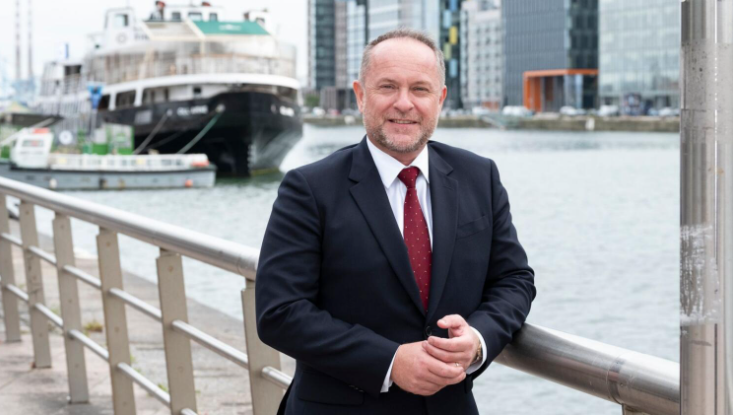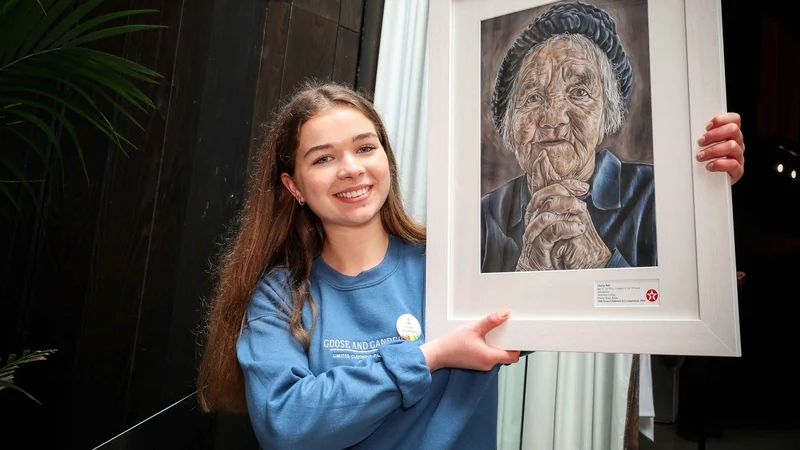The businessman plans to build a series of bio-methane refineries in Britain and Ireland through a company he chairs called Manby BGE as part of a projected €1 million spend.
The refineries will break down organic matter such as animal waste through a process called anaerobic digestion, with all gas produced reserved specifically for use by the heavy goods transportation sector.
Ennis is also planning for 2050 Group, a second business he chairs, to establish a nationwide chain of refuelling stations rather than selling the bio-compressed natural gas (Bio-CNG) that Manby BGE produces through other distributors.
Ennis told the Business Post that Manby BGE is already going through the planning process for its first bio-gas refinery in Lincolnshire at a projected cost of €150 million.
The group intends to develop four more sites in Britain and two in Ireland, with Ennis claiming there is strong interest from backers in the project. Each refinery would be capable of producing up to 6000 cubic metres of gas every hour, more than enough to fuel 1,000 HGVs operating 24/7, 365 days a year.
Ennis previously founded Vayu in 2003, which was the first independent firm to get a gas supply licence in Ireland and won 30 per cent of the industrial and commercial market, before he sold his stake for €10 million in 2011.
He said Manby GBE’s plan is to build up to 12 sites in the next decade.
“We’ve lots of other investors who want in on this. There was already huge interest in the plan before the war in Ukraine but the impact of that on energy prices, combined with the need for businesses to do more on the ESG front, means that what we are proposing is proving to be very attractive,” he said.
“This is very much a means of ensuring security of supply while also accelerating the green agenda.”
Ennis believes there is a strong opportunity to get truck drivers using fuel that is cheaper that fossil fuels and less damaging to the environment.
“Forget about hydrogen. Bio-CNG is the only real commercially viable alternative to diesel for HGVs. One truck consumes more energy in a week than your average household does in a year. HGVs account for just 5 per cent of all vehicles on European road, but with responsibility for 25 per cent of all emissions,” he said.
The planned refineries will also process biodegradable waste to extract CO2, which will be sold to the drinks industry. The remaining bio-gas can then be used for the transport sector or injected into the gas network, with a third product, fertiliser, that can be returned to farmers for use on their lands.
Currently, there are four publicly available CNG/Bio-CNG stations in Ireland and a small number of private ones. Research undertaken by 2050 Group estimates that close to 50 stations would be able to supply 80 per cent of the fuel needs for HGVs. The company is currently looking at developing up to 20 stations itself, in order to speed up the availability of bio-CNG gas for transportation.
2050 Group already has a Bio-CNG fuelled delivery truck contracted to Spar owner BWG Foods. Ennis said HGVs can run at a cost of €0.43 per km, versus diesel with a 10 per cent biofuel blend, which costs €0.76 per km.
“Ireland per capita has the most amount of agricultural waste that can be turned into fuel in Europe, but we’ve probably done least to take advantage of this. In other countries, there have been moves towards using Bio-CNG for fuelling trucks, but we’ve not followed. We have a huge opportunity, and I’m determined to lead the way in addressing this,” Ennis said.









